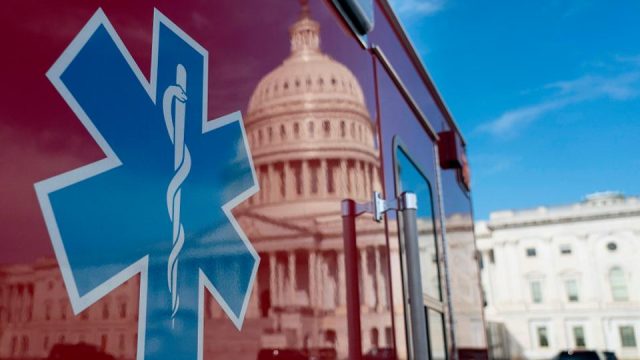Renters: How to Get COVID-19 Rent Relief
What to do if you face eviction or can’t pay your rent due to COVID-19
By JIM PROBASCO
Updated Mar 30, 2020
What if losing a job, even temporarily, means you need rent relief or you can’t pay your rent? As more and more states impose lock downs or stay-at-home orders to prevent spread of COVID-19, renters, who are among the most vulnerable when it comes to housing security, wonder what relief they could have to help pay the rent or avoid eviction.
Programs for homeowners that prevent foreclosure, eviction, and provide mortgage payment relief are available from the federal government, states, municipalities, and private lenders. Now, the same help is ramping up for renters. Here’s what’s available, how it works, and how to get help.
KEY TAKEAWAYS
Several federal, state, and local programs have suspended COVID-19-related evictions for anywhere from 30 to 90 days.
Rent forbearance is available through some of the same programs that have suspended evictions.
Additional rent assistance is offered by various social service agencies as well as state and local programs.
Pending legislation in the form of a $2 trillion stimulus bill may offer indirect help via $1,200 checks to many adult U.S. citizens.
CARES Act Eviction Protection
The CARES Act, signed into law Mar. 27, 2020, provides 120 days of eviction relief for tenants in federally-backed housing. Specifically, you may not be served with an eviction notice until July 25, 2020 and the notice must give you 30 days to leave the property (Aug. 24, 2020).
During the 120 day eviction moratorium, your landlord may not charge you late fees, penalties, or other charges for paying your rent late. It’s important to note that the eviction moratorium does not relieve you of your obligation to pay your rent. It merely forbids your landlord from evicting you during that period for late payment.1
Rental Housing Covered by the Eviction Moratorium
The temporary moratorium on eviction filings pertains to any rental housing that is:
Covered under section 41411 of the Violence Against Women Act of 1994 (34 U.S.C. 12491(a); or
Covered by the rural housing voucher program under section 542 of the Housing Act of 1949 (42 U.S.C. 1490r); or
Has a Federally backed mortgage or multifamily mortgage loan1
CARES Act Tenant-Based Rental Assistance
In terms of help with paying your rent, the CARES Act provides the Department of Housing and Urban Development (HUD) with an additional $17.4 billion in funding including monies for rent assistance, housing vouchers, public housing, and housing for the elderly. For help contact HUD Rental Assistance.2 1
CARES Act Indirect Assistance
The $2.2 trillion CARES Act legislation also provides financial assistance that can help with housing costs, since how you use the money is not specified.
Direct Payments
Recovery benefits of $1,200 per adult individual ($2,400 for couples filing jointly) and $500 for each child age 16 and under will be automatically sent sometime in April 2020. To receive the full $1,200 ($2,400) your AGI for 2019 or 2018 must be $75,000 ($150,000 for couples). The amount you get goes down as income rises until it disappears entirely.1
Expanded Unemployment Benefits
Your eligibility for unemployment insurance is expanded if you lose your job due to COVID-19. After your regular state benefits expire you may receive up to an additional 13 weeks of benefits including an additional $600 per week. Unemployment benefits are also expanded to include people not normally eligible such as independent contractors, part-time employees,or members of the gig economy.1
Fannie Mae Disaster Response Network
Fannie Mae’s Disaster Response Network has published a guide for renters affected by the coronavirus (COVID-19). Through the network, HUD-approved housing advisors provide:
Personalized recovery assessment and action plan
Help working with your housing situation
Financial coaching and budgeting
Access to Clearpoint’s* Project Porchlight Online tools and resources
Ongoing check-ins to help ensure a successful recovery
Call 877-542-9723 to access the Disaster Response Network.3
$1,194
National median rent on a two-bedroom apartment as of:
February 26, 2020.
Source: Apartmentlist.com March 2020.4
211.org Social Services Search
United Way sponsored website 211.org provides an easy-to-use search bar by zip code, or by community and state, to find sources of help with rent as well as many other essential services. Fill in the required information, click “search” and get information about available help.5
State By State
Many states have taken action to pause or suspend renter evictions, at least temporarily. The table below lists those states that have halted evictions and the date or time period the suspension ends if known. The list will be updated as it changes.
Cities and Counties Also Offer Help
Even in states where a statewide moratorium on evictions or help with rent is not available many cities and counties have programs of their own. Check local and state government websites for information about COVID-19 related eviction moratoriums, rent forbearance or rent assistance.
Advice From the National Apartment Association (NAA)
The National Apartment Association (NAA) reminds all renters who have suffered financial distress as a result of COVID-19 to reach out to their landlords to explain their circumstance. In addition to national, state, and local programs, many individual private owners have plans underway or already in place to help deal with the financial impact of the coronavirus outbreak.
http://www.investopedia.com/renters-how-to-get-covid-19-rent-relief-4800858


